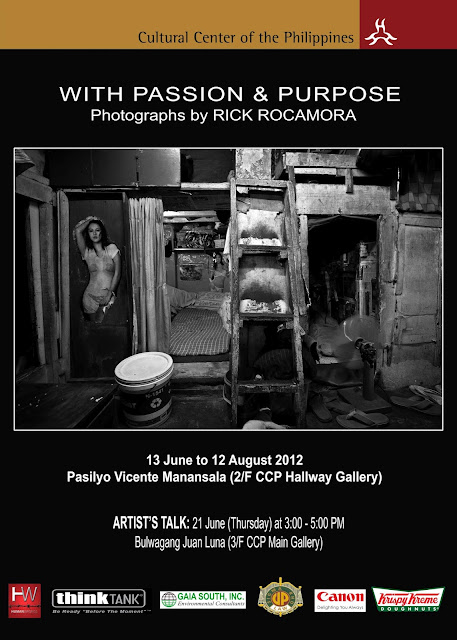Surfacing: A Photo Project on the lives of Desaparecidos
About Projekt Desap
They were activists, wanting to change society by arousing and organizing amongst the masses. They were ordinary civilians, going about their daily lives. Suddenly, they disappear. Desaparecidos is the Spanish word meaning “the disappeared.” It was coined in Latin America where thousands became victims of enforced disappearance implemented by tyrannical regimes.
Enforced disappearance is “committed by government officials or by organized groups acting in behalf, or with the support, consent or acquiescence of the government,” according to the International Convention for the Protection of all Persons against Enforced Disappearance. It is among the most common human rights violations committed in the Philippines, often by suspected military agents in the name of counter-insurgency. Under the administration of President Gloria Macapagal-Arroyo, there have been 184 desaparecidos, the highest since martial law.
SURFACING, a photographers' initiative done in cooperation with the Free Jonas Burgos Movement and Desaparecidos, is an effort to create and sustain public awareness on the issue of enforced disappearances. It shows the lives and struggles of 14 families of the disappeared, as well as that of the disappeared.
“A photograph is an expression of absence and a form of transport,” says writer John Berger. Let these photos express the pain and injustice of the desaparecidos’ absence and transport us to the reality that we need to face and collectively challenge.
Workshop
In October 2007, Projekt Desap held an output-based photo essay workshop for amateur and professional photographers who were interested to develop their skills in creating compelling photo essays/stories while creating awareness of human rights issues.
The workshop, which ran for four weekends, included lectures from veteran photojournalists Gil Nartea, Luis Liwanag, Jes Aznar and Bogsi Panaligan. Participants also underwent shooting exercises and photo critiquing. These helped them in the integration period where they documented the lives of the participating desap family of choice.
At the end of the integration, the pool of photojournalists closely worked with the participants in the editing of the photo essays for presentation and exhibit.
SURFACING is a continuing project open to all photographers who are willing to join this human rights advocacy. Projekt Desap intends to hold more Surfacing workshops for amateur and professional photographers in the Philippines and all of Asia. Interested volunteers (lecturers or participants) may contact Projekt Desap through the contact form.
==
"The problem of the desaparecidos is a world-wide malignancy that has not spared the Philippines, which is in fact now regarded as a principal venue of this offense against the human right to personal liberty. Since the imposition of martial law, the number of missing persons strongly presumed to have been taken by the Armed Forces has considerably increased even under Presidents Corazon Aquino, Fidel Ramos, Joseph Estrada and especially Gloria Macapagal-Arroyo." - Isagani Cruz, PDI 15 July 2007
They were activists, wanting to change society by arousing and organizing amongst the masses. They were ordinary civilians, going about their daily lives. Suddenly, they disappear. Desaparecidos is the Spanish word meaning “the disappeared.” It was coined in Latin America where thousands became victims of enforced disappearance implemented by tyrannical regimes.
Enforced disappearance is “committed by government officials or by organized groups acting in behalf, or with the support, consent or acquiescence of the government,” according to the International Convention for the Protection of all Persons against Enforced Disappearance. It is among the most common human rights violations committed in the Philippines, often by suspected military agents in the name of counter-insurgency. Under the administration of President Gloria Macapagal-Arroyo, there have been 184 desaparecidos, the highest since martial law.
SURFACING, a photographers' initiative done in cooperation with the Free Jonas Burgos Movement and Desaparecidos, is an effort to create and sustain public awareness on the issue of enforced disappearances. It shows the lives and struggles of 14 families of the disappeared, as well as that of the disappeared.
“A photograph is an expression of absence and a form of transport,” says writer John Berger. Let these photos express the pain and injustice of the desaparecidos’ absence and transport us to the reality that we need to face and collectively challenge.
Workshop
In October 2007, Projekt Desap held an output-based photo essay workshop for amateur and professional photographers who were interested to develop their skills in creating compelling photo essays/stories while creating awareness of human rights issues.
The workshop, which ran for four weekends, included lectures from veteran photojournalists Gil Nartea, Luis Liwanag, Jes Aznar and Bogsi Panaligan. Participants also underwent shooting exercises and photo critiquing. These helped them in the integration period where they documented the lives of the participating desap family of choice.
At the end of the integration, the pool of photojournalists closely worked with the participants in the editing of the photo essays for presentation and exhibit.
SURFACING is a continuing project open to all photographers who are willing to join this human rights advocacy. Projekt Desap intends to hold more Surfacing workshops for amateur and professional photographers in the Philippines and all of Asia. Interested volunteers (lecturers or participants) may contact Projekt Desap through the contact form.
==
"The problem of the desaparecidos is a world-wide malignancy that has not spared the Philippines, which is in fact now regarded as a principal venue of this offense against the human right to personal liberty. Since the imposition of martial law, the number of missing persons strongly presumed to have been taken by the Armed Forces has considerably increased even under Presidents Corazon Aquino, Fidel Ramos, Joseph Estrada and especially Gloria Macapagal-Arroyo." - Isagani Cruz, PDI 15 July 2007


Comments